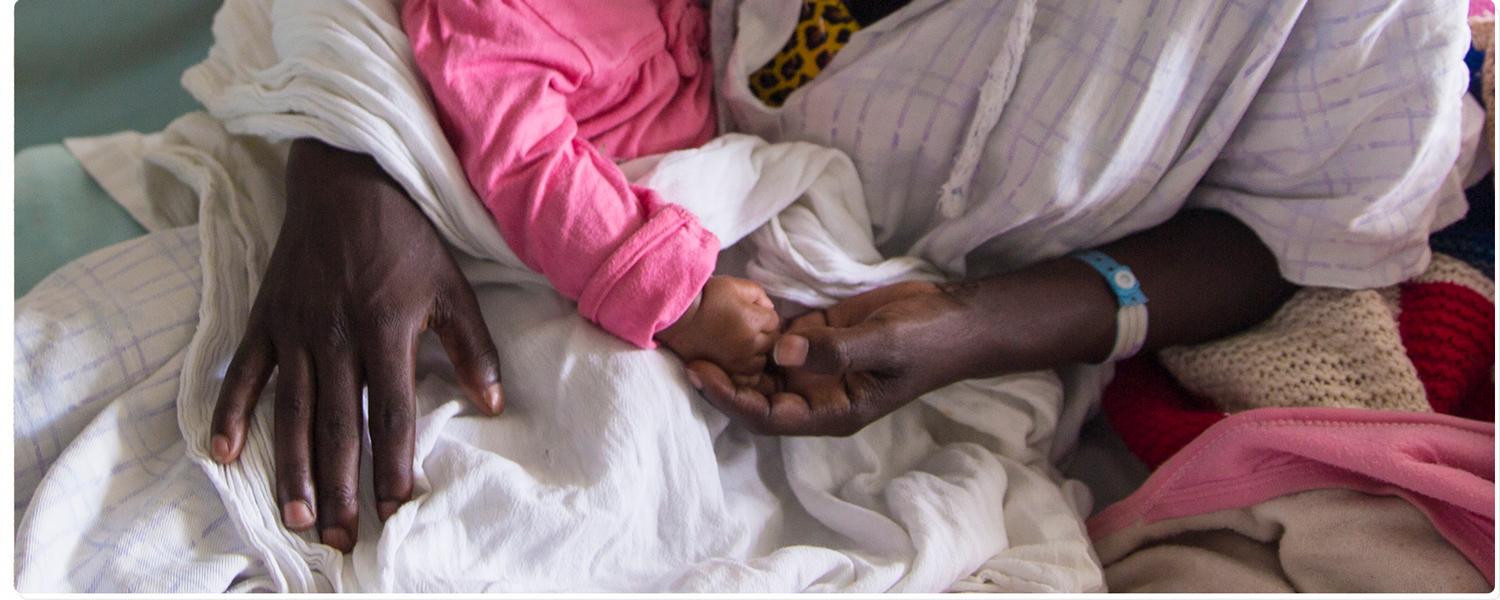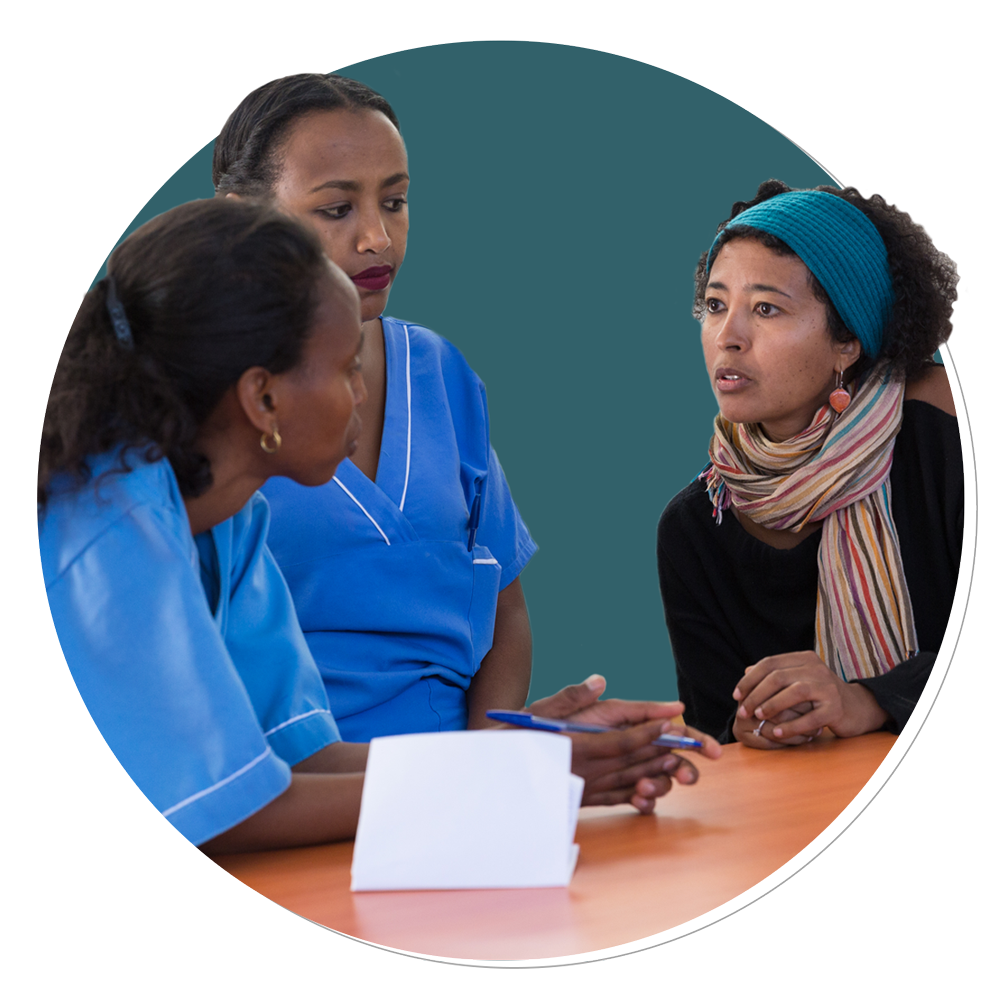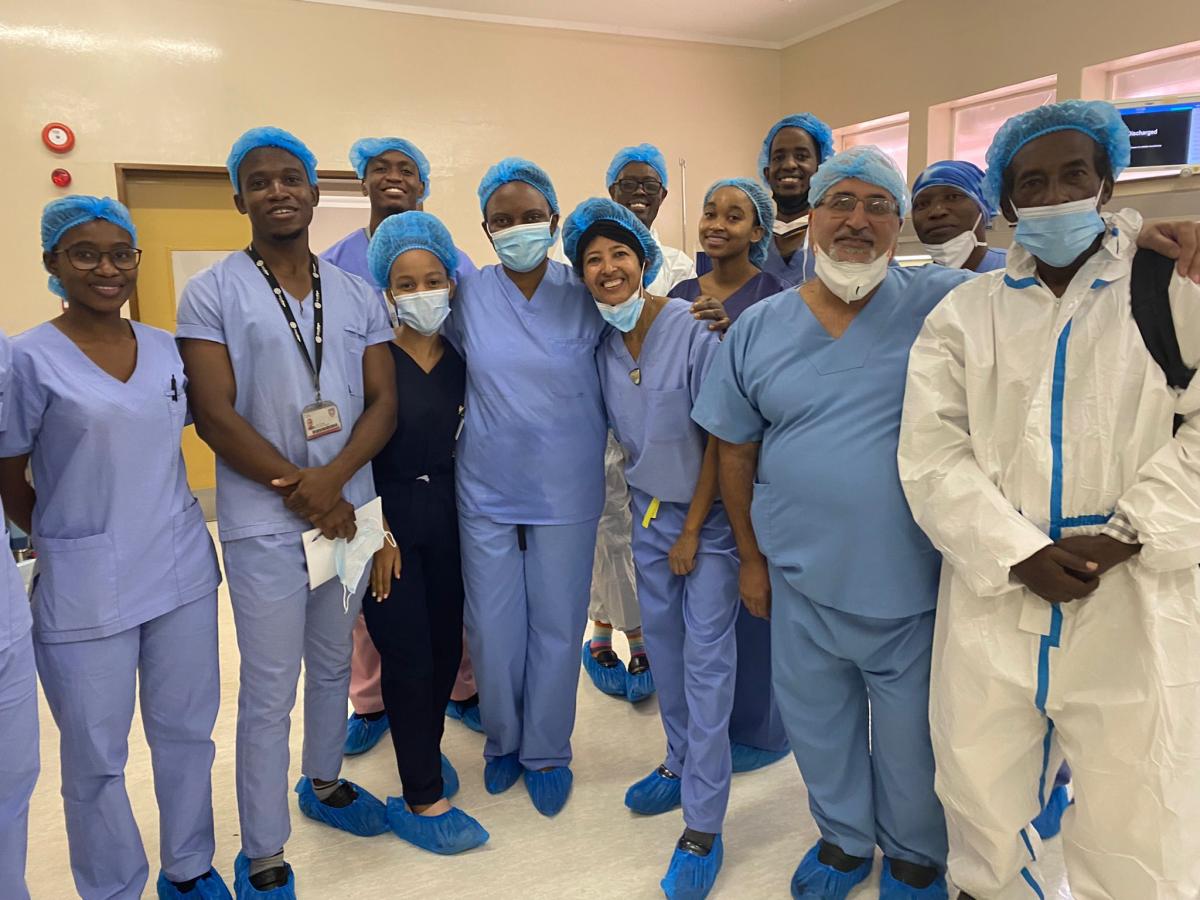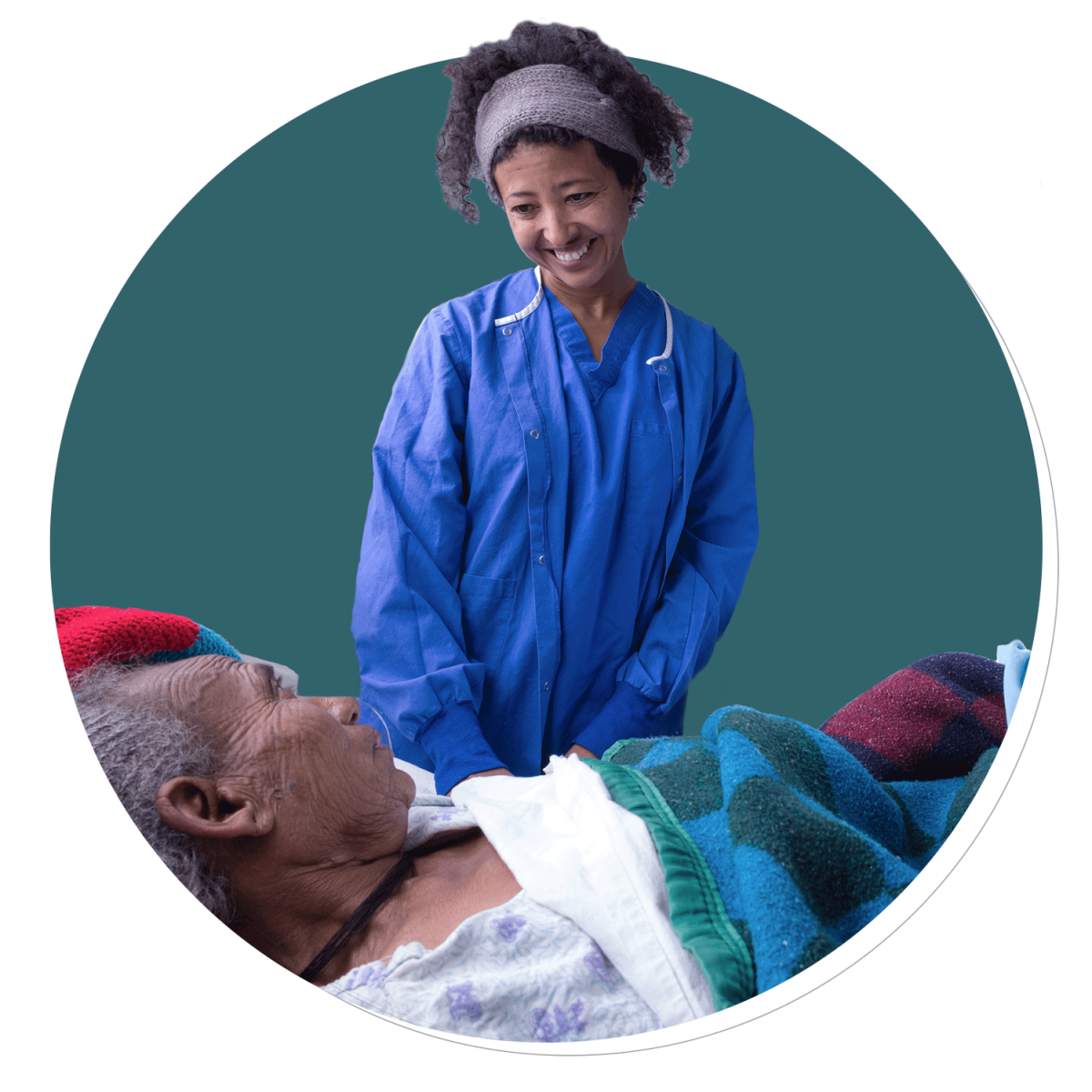Global Women's Health

Photo by Joni Kabana
Approximately 830 women die every day in childbirth, with 94% in low income countries. In the US, pregnancy-related deaths for Black and American Indian/Alaska Native women are 2-3 times higher than white women. Disparities in women’s health outcomes are the result of social, cultural, political, and systemic barriers which can and should be prevented.
This complex problem calls for a visionary and sustainable approach that leverages assets across our university: the collective wisdom of our interprofessional teams in academia, community healthcare champions, and the people we serve.
To address these challenges, the Global Women’s Health Initiative was created in 2020 within the Center for Global Health and Social Responsibility.
“When you invest in women, they invest in their communities. You can’t do women's health work with clinical care alone; the care needs to extend beyond the walls of healthcare institutions to address the larger determinants of health. And it needs to be done by communities, for communities.”
Rahel Nardos, Director of Global Women's Health
Learn more about Rahel Nardos, inaugural director of global women’s health

Photo by Joni Kabana
Fistula: A Film to Promote Better Maternal Health Care Globally
One focus of CGHSR's Global Women's Health Portfolio is working with global partners to prevent obstetric fistula through better maternal health care and access to holistic treatment to those with the condition. CGHSR recently released a short film that captures the physical and emotional harm obstetric fistula can cause while also showcasing the transformative impact effective care can have on those in need of treatment.
Our Activities
Since establishing the portfolio in 2020, we’ve partnered to create a number of programs and events around global women’s health.
Obstetric Fistula Learning Community
The Obstetric Fistula Learning Community meets virtually on a quarterly basis, bringing together women’s health champions and partners in obstetric fistula work to brainstorm collaborative ideas and share best practices. This community platform allows members to share their successes and challenges and synergize their efforts in community outreach, education, research, and leadership.
Programs Under Development
As we continue to expand our portfolio, we are exploring new opportunities for engagement with global health partners and developing our platforms for interprofessional education and public engagement. Interested in collaborating in one of these activities? Contact us here
Simulation for Safe C-Section
Innovative learning tools are needed to build a culture of safe, respectful and team-based care for women requiring timely surgical care for childbirth. We are exploring simulation-based education for safe childbirth in collaboration with the University of Global Health Equity, Mekelle University, M Simulation, Kaiser Permanente Simulation, and GigXR.


Women's Health Equity, Empowerment, & Leadership (WHEEL) Series
In partnership with eleven other centers, institutes, and programs from UMN and beyond, we have developed a recurring women’s health webinar series to share perspectives on the intersection of disparities in global women’s health and public policy, human rights, ethics, and more. These seminars are meant to generate ideas for interprofessional collaboration and action.
Learn more about WHEEL collaborators:
- Center of American Indian & Minority Health
- Center for Bioethics
- Center for Global Health and Social Responsibility
- Center for Leadership Education in Maternal & Child Public Health
- Center for Women's Health Research
- Center for Women in Medicine and Science
- Center on Women, Gender, and Public Policy
- Global Programs and Strategy Alliance
- Global Rights for Women
- Human Rights Program
- Interdisciplinary Center for the Study of Global Change
- Women's Center
- Women's Faculty Cabinet
Upcoming WHEEL Series Events
To be announced, check back soon!
Previous WHEEL Series Events
UMN International Women's Day Webinar Series: Embracing Equity and Justice in Reproductive Rights | February 23 - March 16, 2023
In honor of International Women's Day 2023, Embracing Equity and Justice in Reproductive Rights includes both in-person and remote opportunities to connect around the topic:
- UMN Women's Health Research Conference: Navigating And Innovating Solutions For Women’s Health Services, Policies, And Access Issues | February 23
- Ethics Grand Rounds | Black Reproductive Health: Getting at the Root Cause of Inequity | February 24
- Addressing Gender-Based Violence of Women and Girls in Conflict Situations | February 28
- Campus Conversations on Reproductive Justice | March 1
- Leveraging the Wisdom of Communities for Reproductive Health | March 16
UMN International Women's Day Webinar Series: Coalescing Around Justice, Dignity, and Hope | March 1 - March 10, 2022
In honor of International Women's Day 2022, Coalescing Around Justice, Dignity, and Hope included a keynote presentation and two panel discussions:
- Repeal, Reform, and the Continuing Politics of Abortion Law in Ireland | March 1, 12:00 - 1:00 PM CT
- From Global Health to Safety, Why We Need the Every Woman Treaty | March 3, 12:00 - 1:00 PM CT
- The Power of Personal Stories and Communities to Reduce Disparities in Global Maternal Health | March 10, 8:00 - 9:30 AM CT
Cultural Safety Considerations in Indigenous Maternal Mental Health Services | November 18, 2021, 12:00-1:00 pm CST
This webinar event, co-hosted by the Center of American Indian & Minority Health, featured a presentation by Zoua Vang, PhD, William Dawson Scholar and Associate Professor of Sociology, McGill University and Q&A moderated by Mary J. Owen, MD, Tlingit.
Can Guaranteed Income Advance Gender Equity? | September 30, 2021, 1:30-3:00 pm CDT
In this webinar event, co-hosted by the City of Saint Paul and the Center on Women, Gender, and Public Policy, panelists explore the challenges and possibilities of guaranteed income through a gender lens.
The Humanitarian Impact of Conflicts on Maternal Health and Beyond: Lessons from Ethiopia | August 19, 2021, 9:00 —10:30 AM CDT
In this webinar event co-hosted by the Center for Global Health and Social Responsibility and the G4 Alliance, panelists speak about the conflict's impact on healthcare in general and on maternal health in particular, the current emergency response to healthcare needs among internally-displaced populations, and the concept of health as a human right and how this is affected by conflicts.
Public Engagements
We are fostering engagement and visibility of our portfolio through presentations and speaking engagements.
Dr. Rahel Nardos regularly does clinical educational presentations for medical students and learners. If you are interested in accessing educational materials, please contact us using the methods below.
View previous speaking engagements
OBGYN Grand Rounds
Indiana University on March 22nd, 2023. View the recording here (presentation begins at time marker 17:30).
The Intersections of Reproductive Oppression, Gender-Based Violence and Survivor Justice
Global Rights for Women on January 26th, 2023. View the recording here.
OBGYN Resident Didactic: Obstetric Fistula Surgical Care
Botswana University on March 30th, 2023. View the recording here.
Rethinking Global Health with a Different Lens
Stanford University School of Medicine on January 13th, 2022. View the recording here.
Obstetrics Fistula Panel Discussion
Medical and Surgical Skills Institute (MSSI) Ghana on March 24th and 25th, 2021.
Public and Global Health
MAPS (Minority Association of Pre-Medical Students) on March 22nd, 2021. View the recording here.
Advancing Global Women’s Health - A Conversation with VP Jakub Tolar and Dr. Rahel Nardos
University of Minnesota Office of Academic Clinical Affairs on March 19th, 2021. View the recording here.
Global Health Engagements: Lessons from our Urogynecology Fellowship Training Program in Ethiopia
Global Medicine Lecture Series on March 17th, 2021. View the recording here.
Obstetric Fistula: A Window into Disparities in Women's Health and A Call for Reimagining Global Health Engagements
2021 International Women's Day Webinar Series and part of the University of Minnesota Medical School Dean’s Lecture Series on March 10th, 2021. View the recording here.
The Role of FPMRS in Global Health: Going Beyond - The Hole in Wall
AUGS (American Urogynecologic Society) FPMRS Webinar on February 17th, 2021. View the recording here.
The Burden and Stigma of Childbirth Injuries: Why We Need to Shift Our Global Health Model
UMN Women’s Health Research Conference on January 26th, 2021. Event site here, no recording available.

Photo by Joni Kabana
Global Women’s Health Discovery Fund
We’ve created a new fund to support expansion of the global women’s health portfolio. By making a gift you are supporting capacity-building with local and global partners, health equity-focused engagement and educational activities including work by students, residents, staff, and faculty.